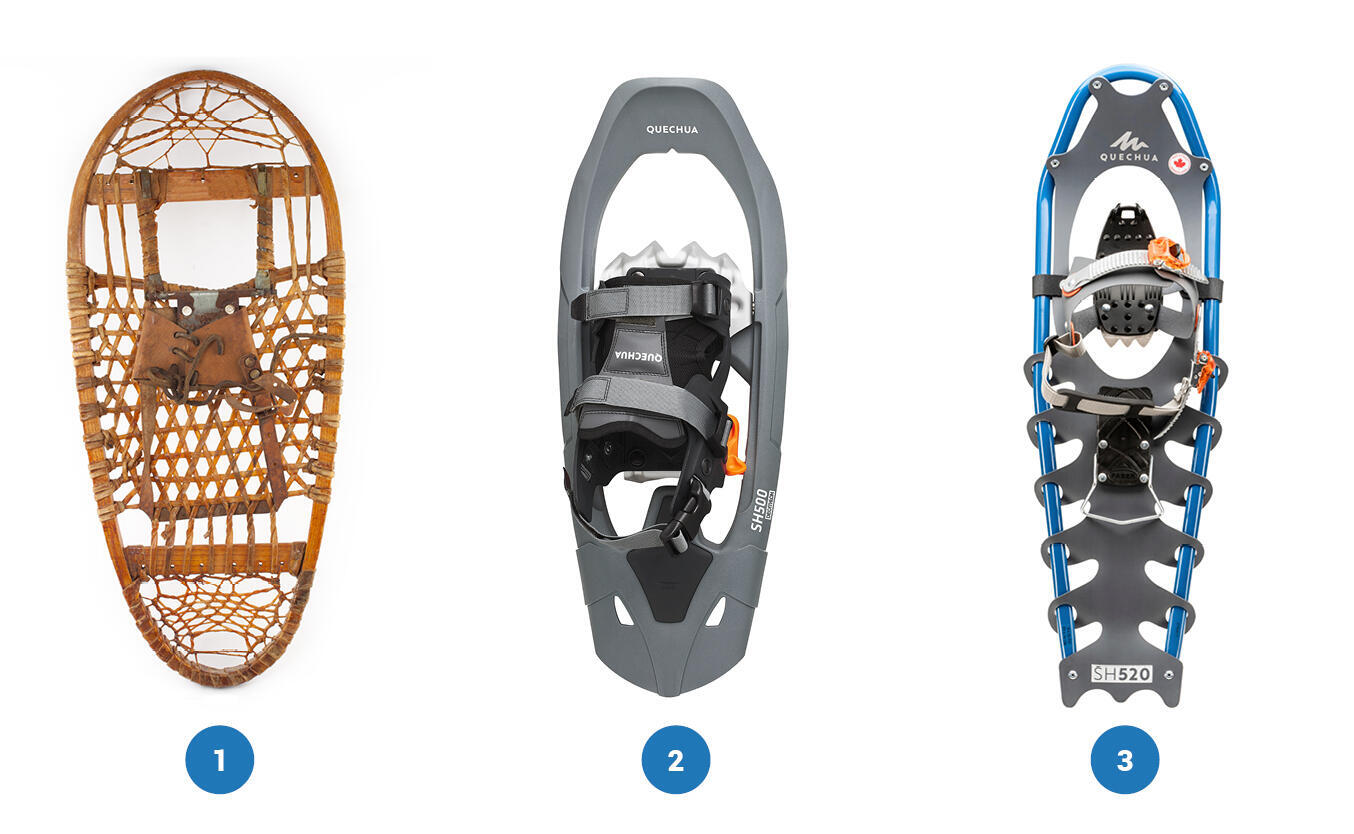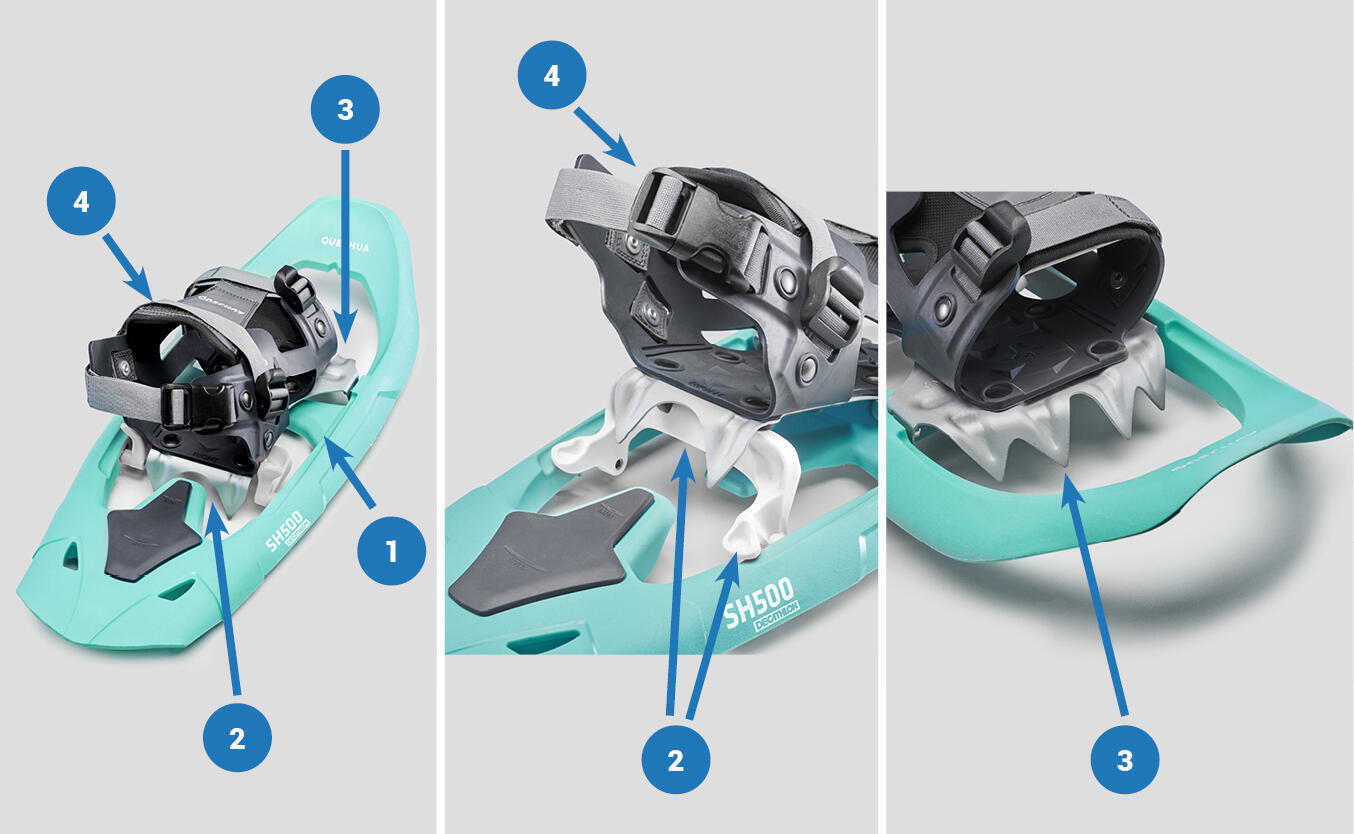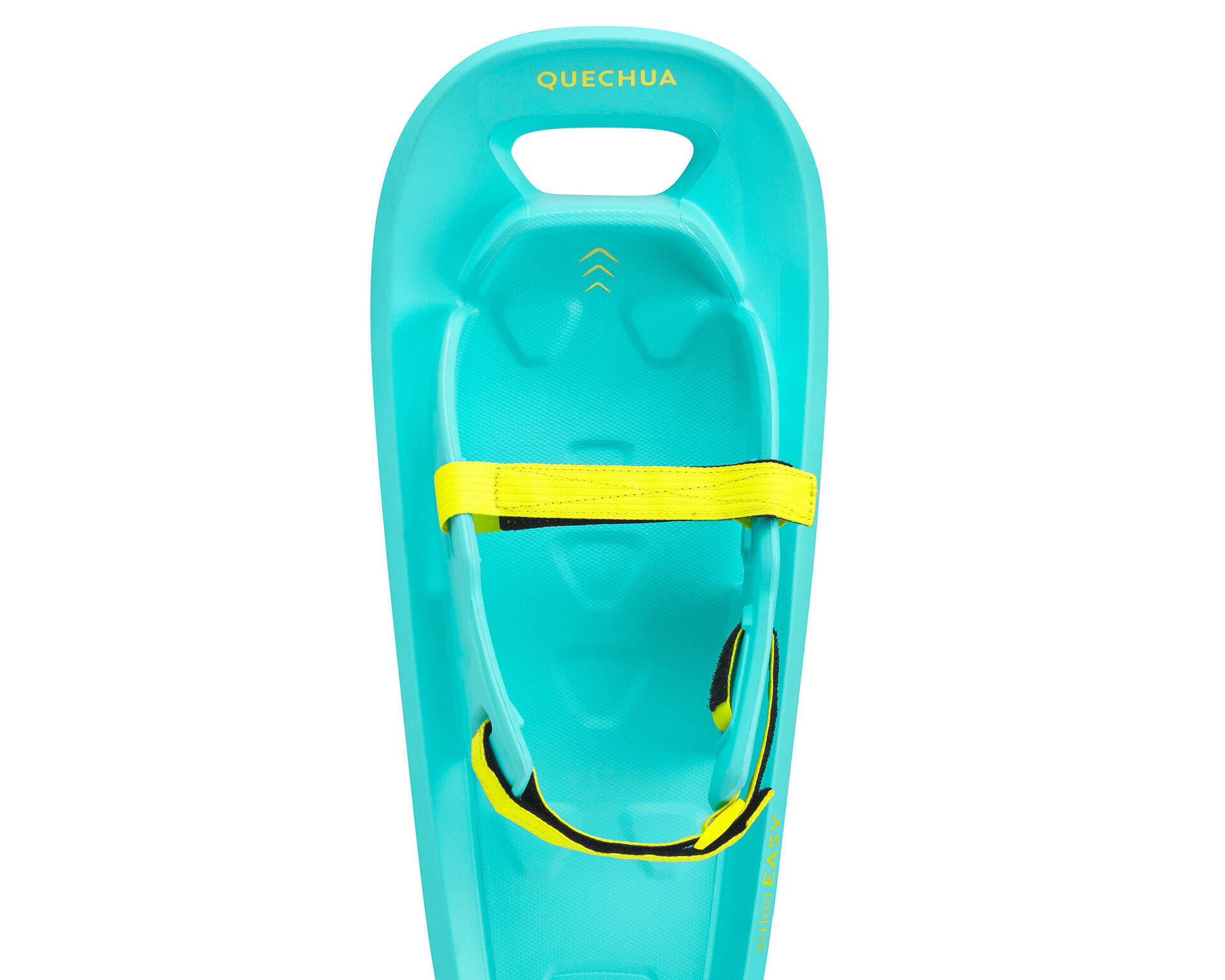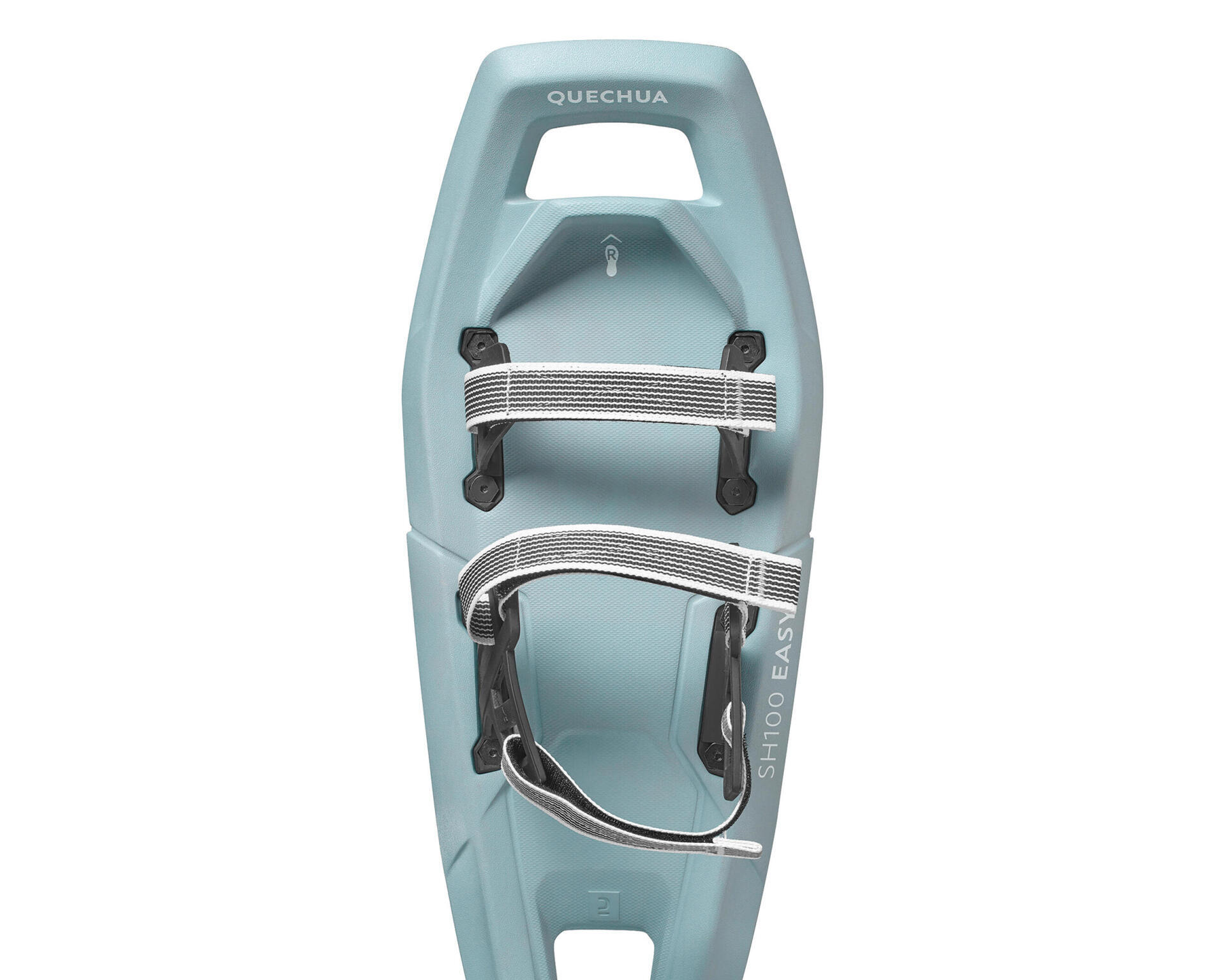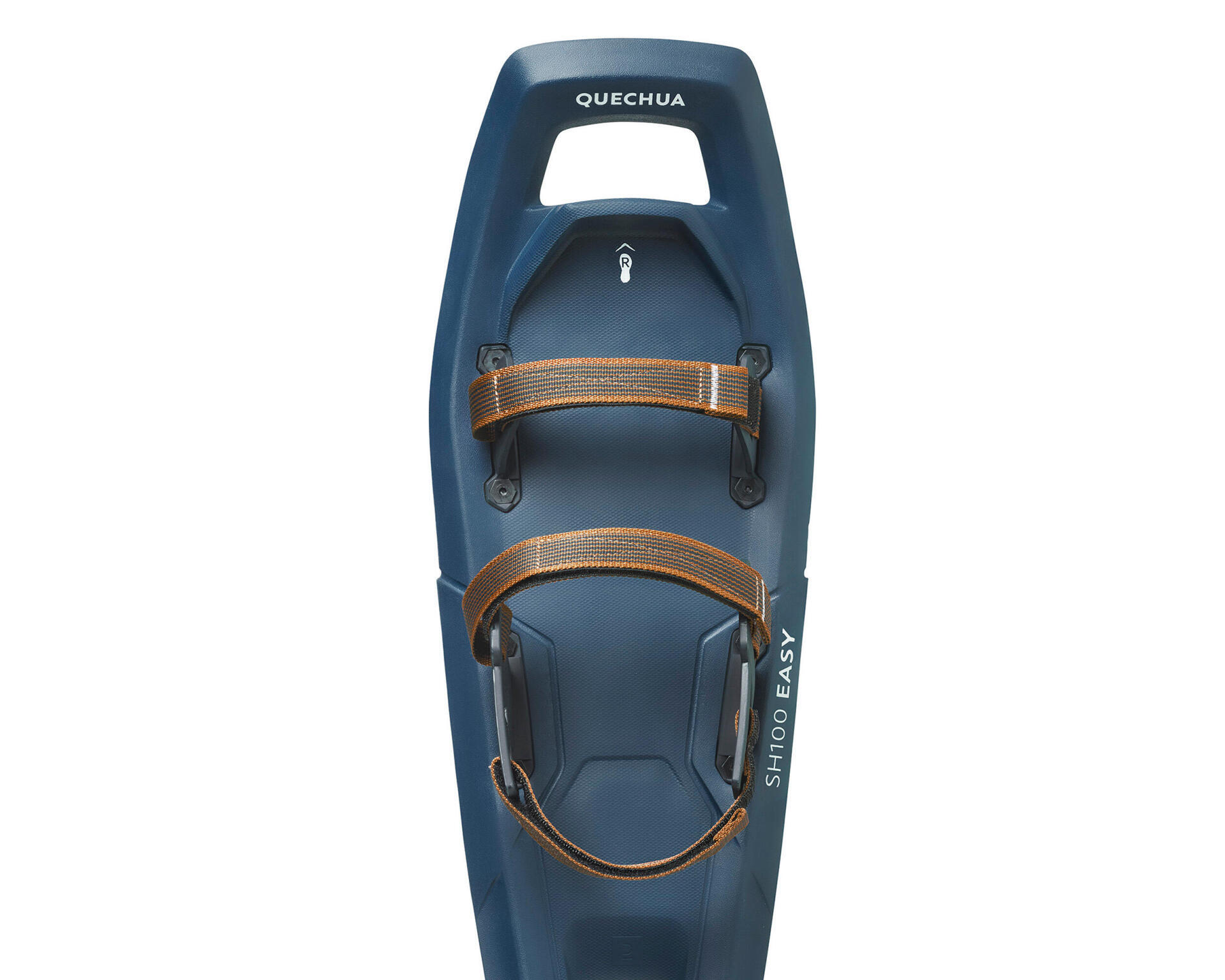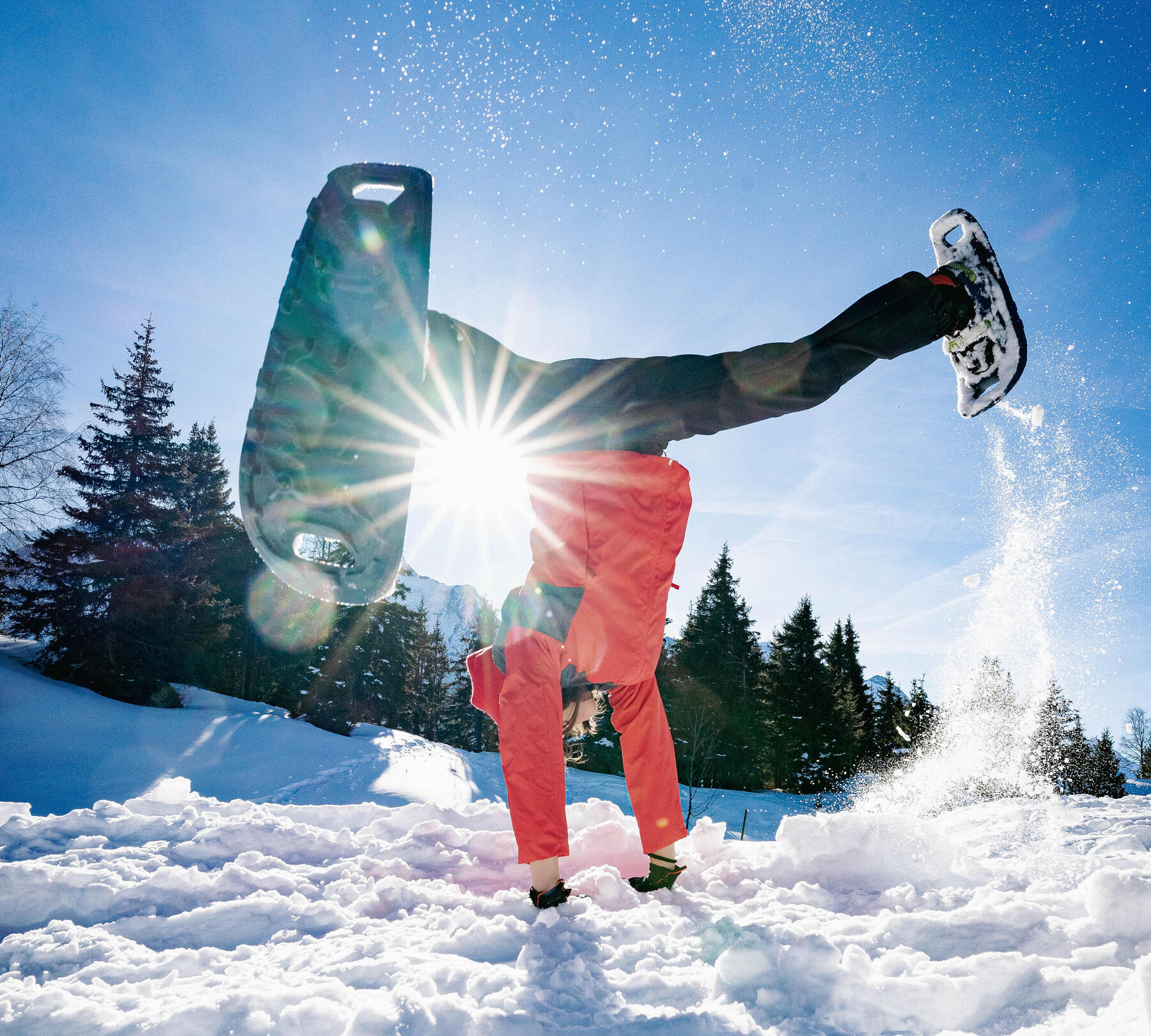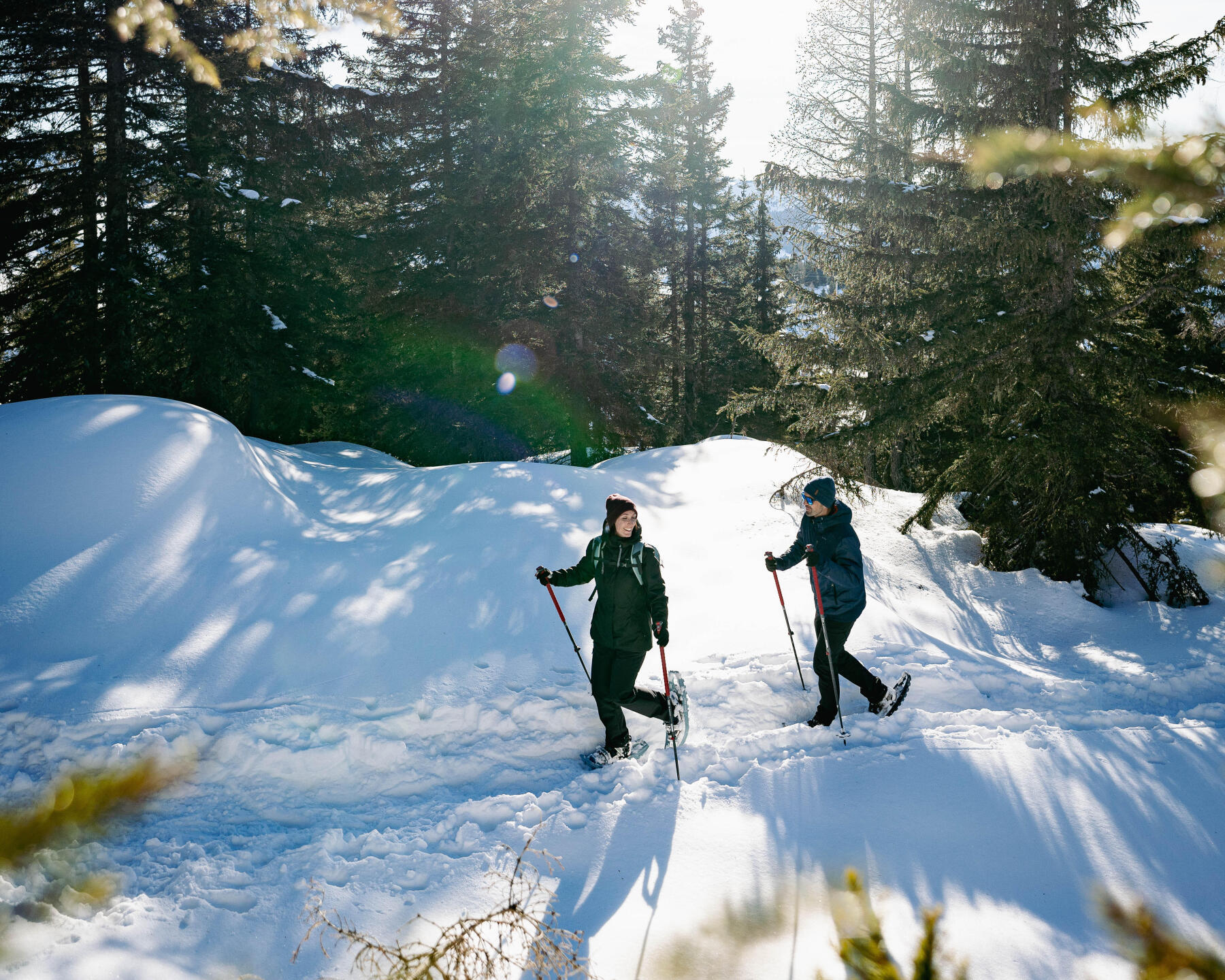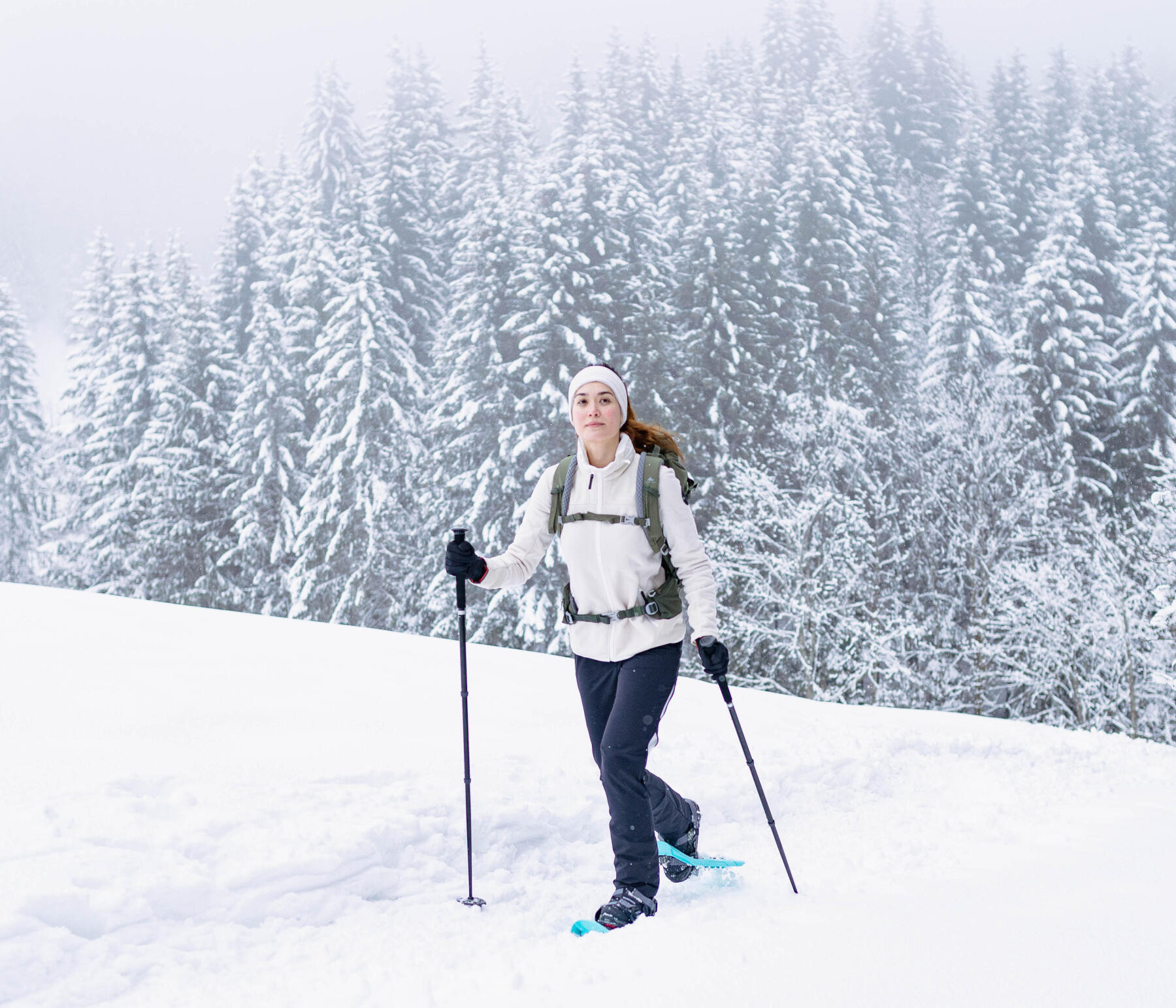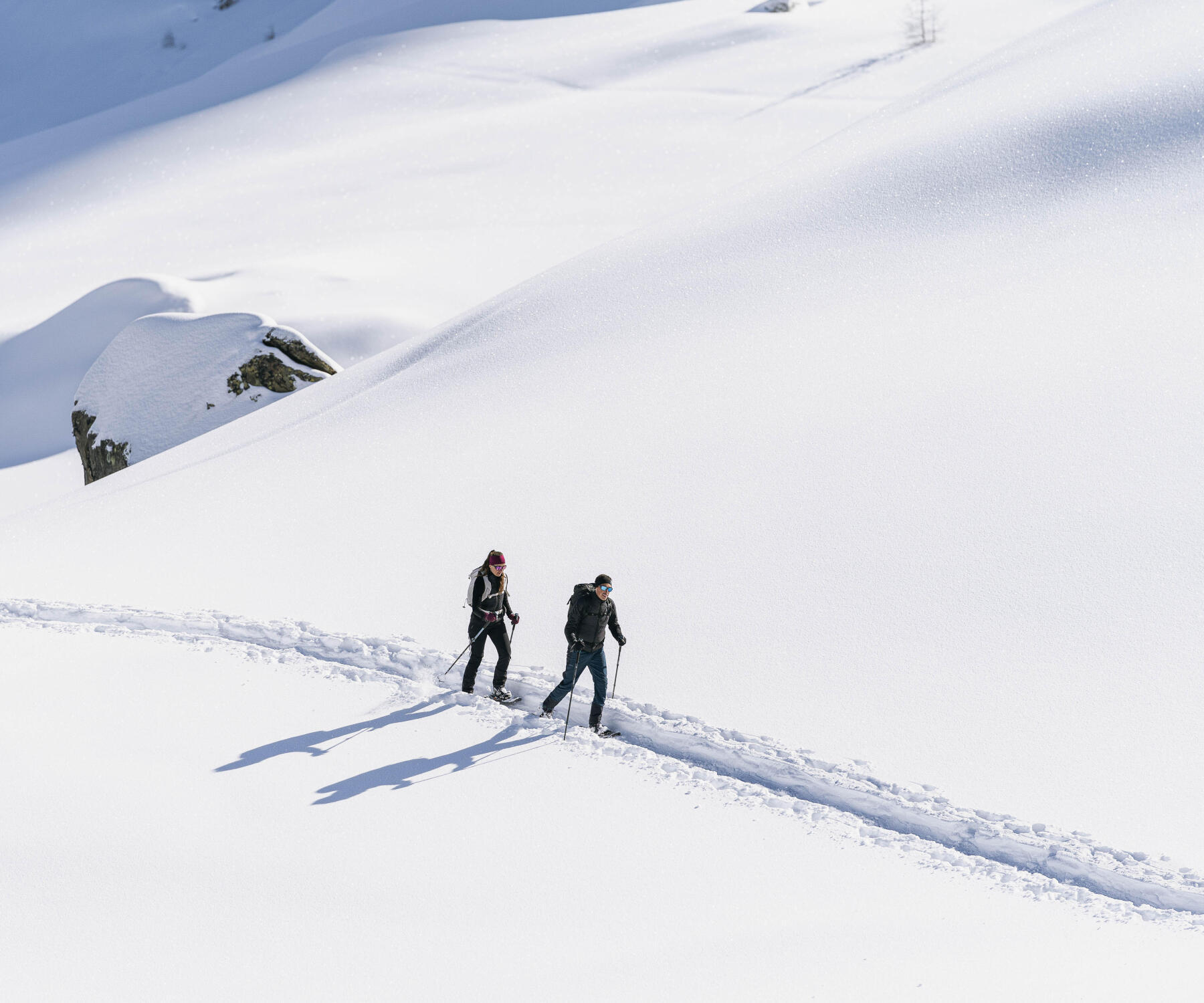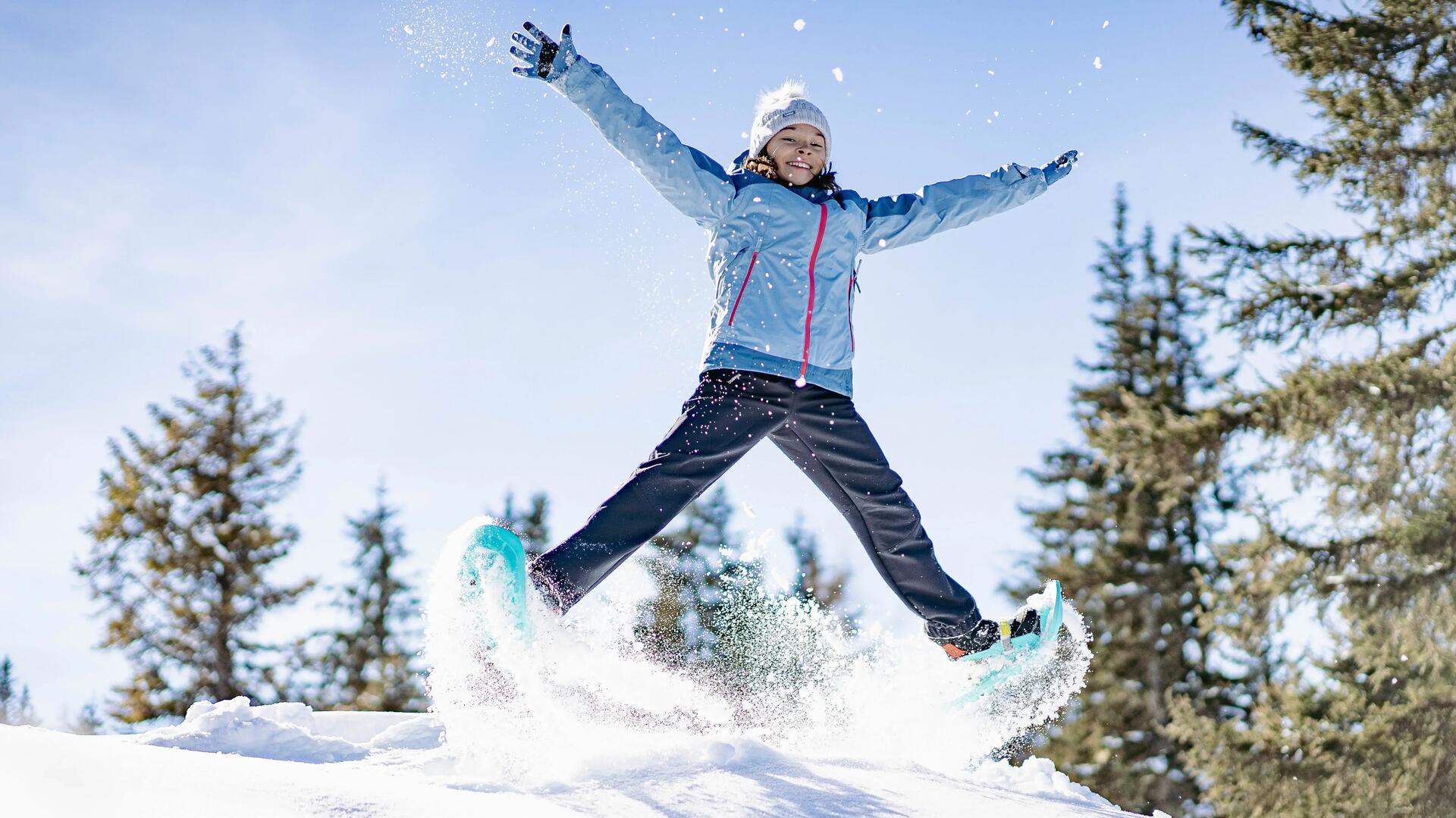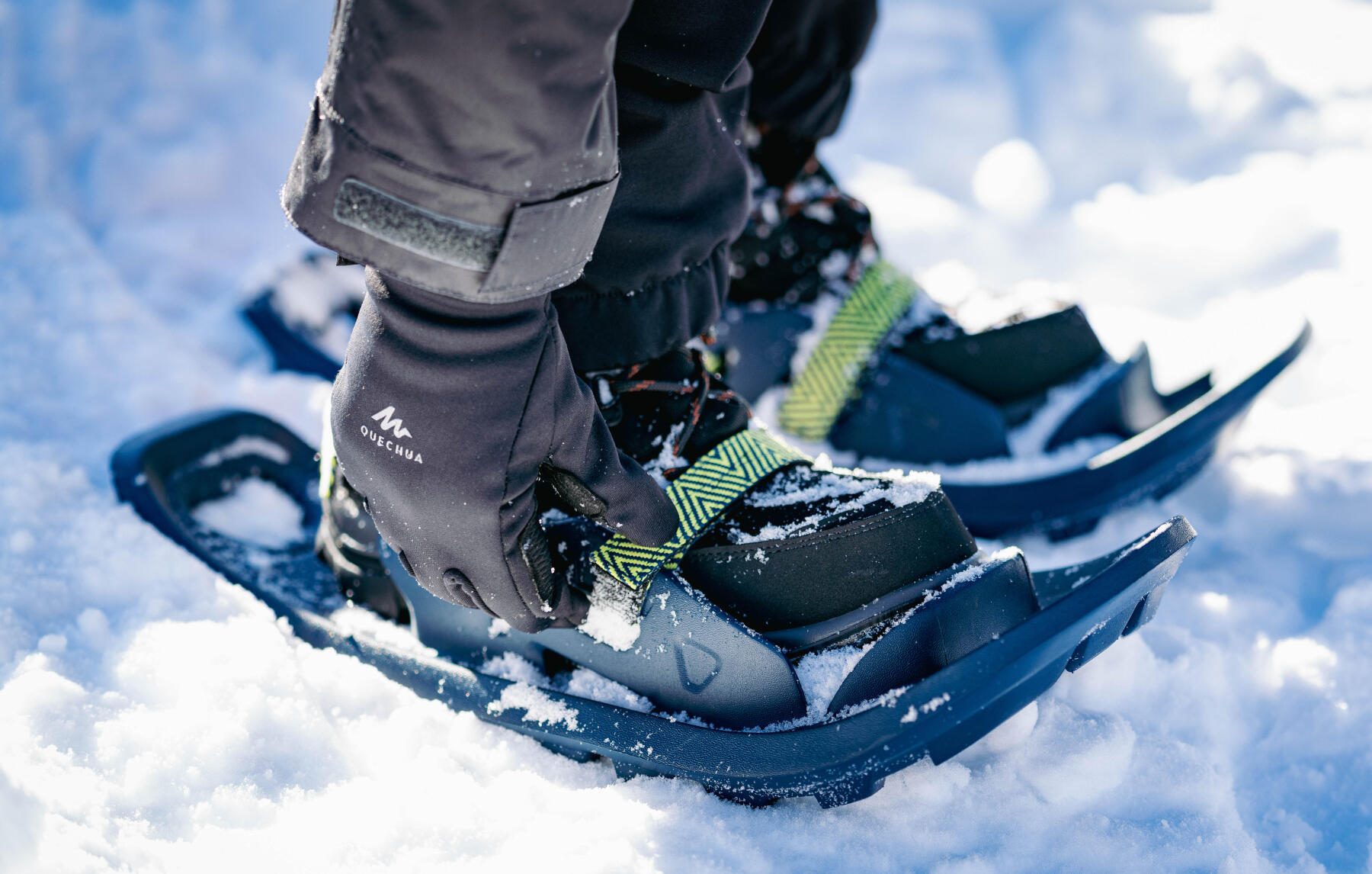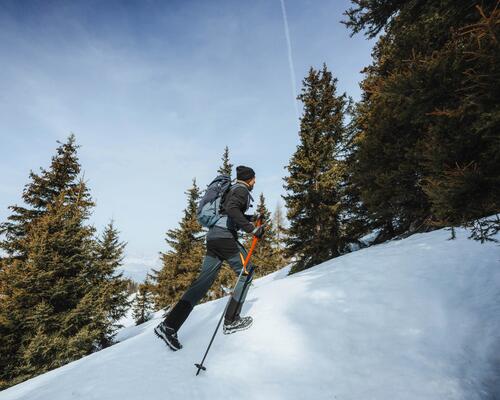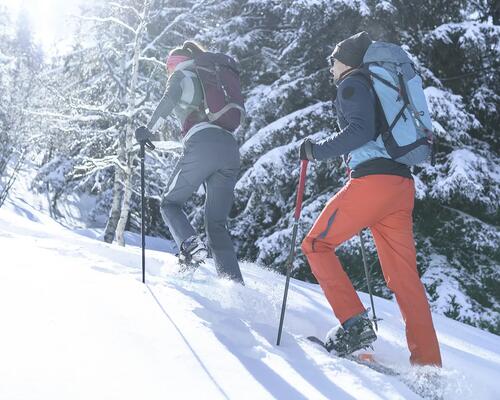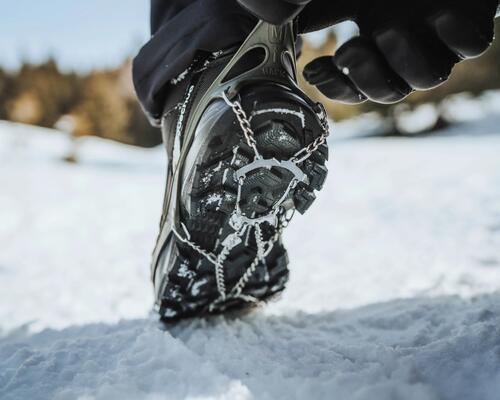WHAT’S A SNOWSHOE MADE OF?
To fully understand your snowshoes, and therefore choose the right ones, it’s important to get to know them properly. Here are the components of a snowshoe:
1. the deck
The deck is the part under your foot. It's like an extension of the sole of your shoe, but designed for snow-covered ground. Its purpose is to provide you with grip. The more you weigh, the wider the deck will be to keep you on the surface of the snow and prevent your feet from sinking.
2. the heel lift
The heel lift is a removable part that raises your heel so that it is more or less horizontal when you are going up a slope. It’s used in steep climbs to reduce the effect of the slope and thus reduce the effort required. Snowshoes fitted with a heel lift make walking up slopes easier and more comfortable. So you'll need one if you're taking paths that require a lot of climbing, and you don't want to be completely exhausted at the end of your outing.
3. the crampons
There are several types of crampon. As their name suggests, toe crampons are located at the front of your foot, underneath your toes. They provide good grip in snow when climbing. Some snowshoes also have them under the decking, to grip when the terrain is steeper or the snow harder. Side rails, which can be added to certain snowshoe models but are included with Quechua snowshoes, provide extra stability on slopes and downhill runs.
4. the bindings
Oh, the bindings! Without it, there’d be no snowshoeing outings. The bindings are an essential part of your snowshoes. They will enable you to become one with your snowshoe (a bit like the bindings on downhill skis, cross-country skis or snowboards). This is where you'll find the straps that you can use to adjust the snowshoes so that they fit to your shoes. When they are well adjusted, you can walk naturally and feel at ease on both fresh and hard snow.

